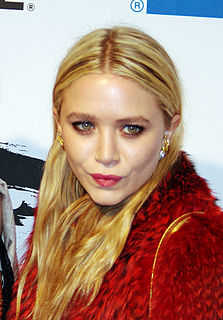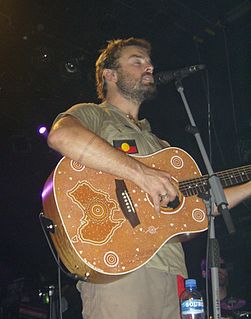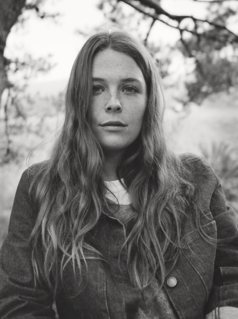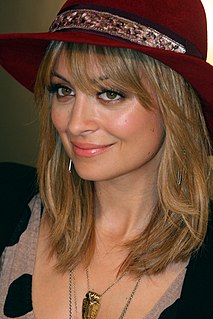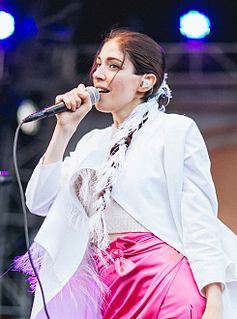A Quote by Christina Aguilera
I talk openly about my past and what I've gone through - abuse being something that was very real in my household, and a lot of chaos growing up as a child. I think that I naturally just gravitated towards music that I could really feel on a deep level - and that meant sadness. I was able to connect with that at a really young age.
Related Quotes
I don't think I'm prepared for life in the spotlight. I don't even think I'm really prepared now, but I still don't really feel like I'm in the spotlight a lot. I'm not a household name. I'm not followed around by paparazzi. I still have a very normal life. I'd love as many people to know and like my music as possible, but there's something quite lovely about being able to still go and watch your boys play football.
When people connect to my work, it makes me feel great. A lot of that stuff is really deep, and when I play something and people feel what I feel, and use it in important situations in their lives, like at weddings or funerals, that's so powerful. It means I can connect with them on an important level.
I would hate to think I'm promoting sadness as an aesthetic. But I grew up in not just a family but a town and a culture where sadness is something you're taught to feel shame about. You end up chronically desiring what can be a very sentimental idea of love and connection. A lot of my work has been about trying to make a space for sadness.
It's the balance I'm trying to find - not being disconnected but giving myself some space to be in my world. I feel like I'm surrounded by friends of mine who are very different from one another but all care about similar things. We talk about this a lot, and I think that's probably the main thing - being surrounded by good people is the best way to stay in a solid head space. You want to be able to talk about these things, and be able to think things through and feel things through. That's helpful for me.
I didn't think, 'I'd really like to work in TV; maybe I could carve out a niche where I talk to people who are somehow involved in marginal or difficult lifestyles... ' It was something I gravitated to very naturally as a subject area, almost instinctively, and somehow turned into a TV career without meaning to.
A lot of people in college go astray because they choose something that doesn't really, really connect to them. And if it doesn't connect to you, you're not able to put in that 10,000 hours that people talk about. You don't have the focus. And you start off in life on the wrong foot and you never get back.
When I find myself having to share a meal with someone who simply wants to complain about the world, I almost feel myself wanting to crawl out of my skin and just sort of scurry away. But being able to pick up on that stuff and being able to easily identify the people walking towards the light instead of walking towards the darkness, that's a skill I'm very, very glad to see growing in myself.
I'm hugely inspired by the '60s and the '70s. I just love the music of that time and the overall freedom of that era. I love that the idea of clashing didn't really exist. You could mix prints on prints, you could mix fabrics and colors - and it was more about the way you felt than about the label and trends. That's something that I've always gravitated towards.


